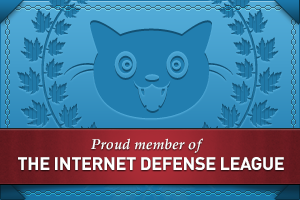For many people, the end of December is a festive occasion with gatherings, gifts and feasts. Turkey dinners are a family challenge; once everyone has eaten, you may find people yawning and feeling sleepy.
Is there a particular reason why Christmas dinners make people feel so sleepy? You might have been told about turkey being rich in an amino acid called tryptophan.
This is not a medical article, but let’s look at the Turkey meat and drowsiness hypothesis.
![[AI rendered] Christmas turkey dinner](https://i0.wp.com/s3.eu-west-1.amazonaws.com/images.inpurespirit.com/wp-content/uploads/2022/12/26093816/Girdy_turkey_christmas_dinner_4k_photoreal_photograph_family_me_c89123eb-ce1d-4018-8c3c-b4bb528b8c54-1024x683.png?resize=1024%2C683&ssl=1)
Turkey meat and drowsiness hypothesis
The hypothesis that eating turkey meat causes drowsiness is commonly known as the “tryptophan turkey meat and drowsiness hypothesis”. It is based on the idea that the chemical tryptophan, found in turkey meat, is responsible for drowsiness.
The drowsiness experienced after eating turkey meat is caused by tryptophan being converted into serotonin in the human body. Serotonin is a neurotransmitter that helps regulate sleep and thus can induce sleepiness.
However, studies have shown that the amount of tryptophan found in turkey meat is insufficient to cause drowsiness. It is more likely that the tiredness experienced after eating turkey meat is due to the large amounts of carbohydrates consumed in combination with the turkey, which trigger a surge in insulin levels. This, in turn, causes the body to absorb more tryptophan, increasing serotonin levels and drowsiness.
Which other foods have Tryptophan
According to Wikipedia, the top 5 foods for tryptophan to food weight are;
- Egg white, dried
- Spirulina, dried
- Cod, Atlantic, dried
- Soybeans, raw
- Cheese, Parmesan
Some foods have a higher tryptophan/protein ratio, though, such as;
- Chia seeds, dried (2.64)
- Milk (2.34)
- Sesame seed (2.17)
Why do we eat turkeys for Christmas?
The tradition of eating turkey for Christmas originated in England during the 16th century. At the time, turkey was a relatively inexpensive meat, so it was a popular choice for large family dinners. As the tradition of eating turkey on Christmas spread throughout Europe, it eventually made its way to America.
Turkeys are a large bird, and they can feed many people with one bird. Additionally, their flavour is suitable for a variety of accompaniments. From the classic roast potatoes and stuffing to cranberry sauce and vegetables, the turkey is the perfect centrepiece for a festive feast.
It is thought that in America, the tradition of eating turkey for Christmas was further popularized by Charles Dickens in his novella, A Christmas Carol. In the story, the Cratchit family feast on a turkey on Christmas Day.
From there, the tradition was firmly established and continues to this day.
So, there you have it – why do we eat turkey for Christmas? Turkey is a relatively inexpensive meat, it feeds a lot of people, and it is versatile enough to pair with a variety of sides. As Charles Dickens said, “What could be more pleasant than to expect a good dinner on Christmas Day?”
Where are Turkeys from originally?
In one last twist, Turkeys are not native to the UK.
Turkeys are native to North America and were first domesticated by indigenous peoples in Mexico centuries ago. Over time, they were brought to Europe by Spanish explorers, and eventually, they made their way to the United Kingdom and other parts of Europe.
In Pure Spirit
What’s your favourite family-sized feast?


 Parabens are chemicals found in natural foods like beans, carrots and cucumbers, and man-made parabens have been used to preserve everyday products from toothpaste to cosmetics for more than six decades. However, some believe paraben preservatives could pose health risks – whilst the cosmetic industry deny there is cause for concern, governments decline to ban them, and regulatory bodies continue to sanction their use.
Parabens are chemicals found in natural foods like beans, carrots and cucumbers, and man-made parabens have been used to preserve everyday products from toothpaste to cosmetics for more than six decades. However, some believe paraben preservatives could pose health risks – whilst the cosmetic industry deny there is cause for concern, governments decline to ban them, and regulatory bodies continue to sanction their use. Is it easy buying someone a Valentine’s Day gift? You may well be very nervous.
Is it easy buying someone a Valentine’s Day gift? You may well be very nervous.








